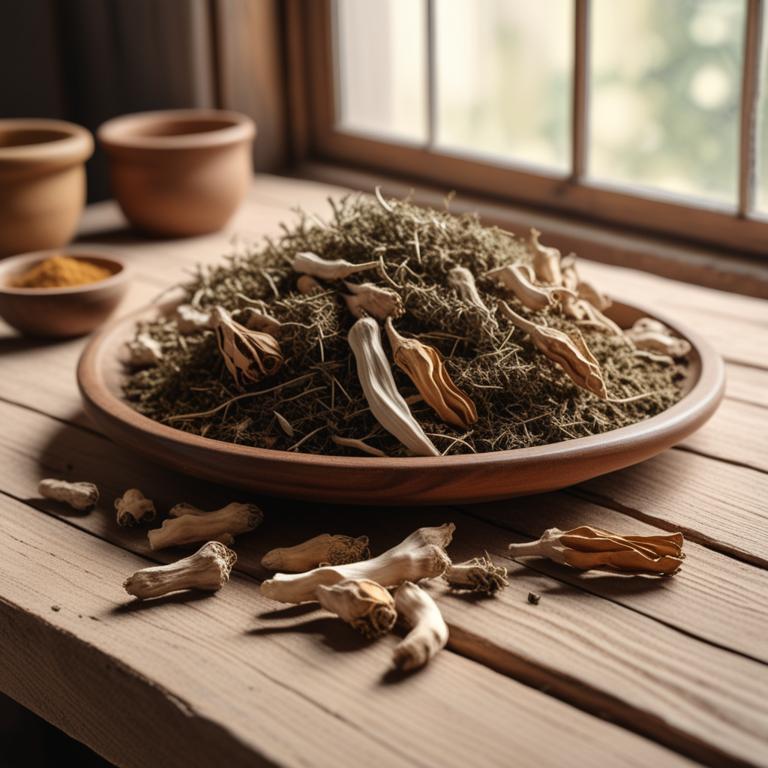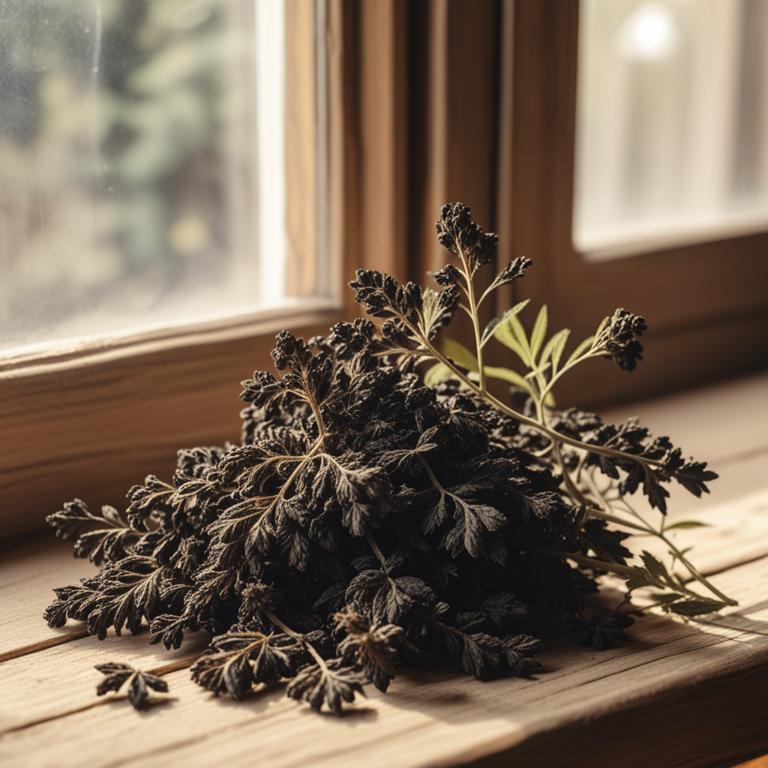Updated: Dec 1, 2024
Hoarse Voice: Understanding Causes and Using Medicinal Herbs and Herbal Preparations

A hoarse voice can be quite a nuisance.
It's when your vocal cords get inflamed or strained, making your voice sound rough, raspy, or croaky. This can affect your daily life, especially if you're a singer, teacher, or anyone who uses their voice a lot. You might feel self-conscious about speaking in front of people, or struggle to communicate effectively. Hoarse voice can be caused by shouting, singing, or talking loudly for a long time, as well as by smoking, allergies, or acid reflux.
It can also be a sign of a cold, flu, or other infections. When your vocal cords are irritated, they can't vibrate properly, leading to that characteristic hoarse sound. Fortunately, there are some natural remedies that can help soothe and heal your vocal cords. Herbs like thyme, licorice root, and slippery elm have anti-inflammatory properties that can reduce swelling and calm irritation. You can use these herbs to make teas, gargle with them, or take them as supplements.
Some people also use honey and warm water to soothe their throats and get their voices back to normal.
Table of Contents
- What are the underlying causes of a hoarse voice?
- What are the benefits of herbs for treating a hoarse voice?
- What medicinal herbs are used to treat and cure a hoarse voice?
- Which herbal treatments are most popular for soothing a hoarse voice?
- If you're experiencing a hoarse voice, which herbs should you steer clear of?
- FAQ
What are the underlying causes of a hoarse voice?
The main causes of hoarse voice are several medical conditions that affect the vocal cords or surrounding areas.
One of the most common causes is Laryngitis, an inflammation of the vocal cords that can be caused by viral or bacterial infections, overuse of the voice, or exposure to irritants like smoke or pollution. Tonsillitis, an infection of the tonsils, can also cause hoarseness as the infection can spread to the vocal cords.
Laryngeal Cancer is a rare but serious cause of hoarse voice, often resulting from years of smoking or other carcinogens. Vocal Cord Nodules, also known as singer's nodules, are benign growths that can form on the vocal cords due to repeated strain on the voice. Vocal Cord Polyps are similar growths, but they are usually caused by a single incident of vocal strain rather than repeated strain.
Lastly, Thyroid Nodules, which are growths on the thyroid gland, can cause hoarseness if they press on the vocal cords, often due to an underactive or overactive thyroid gland.
What are the benefits of herbs for treating a hoarse voice?
Using herbs to soothe a hoarse voice can be really helpful.
They can calm the throat and reduce inflammation, making it easier to speak without straining. Some herbs have antibacterial properties, which can help fight off infections that might be causing the hoarseness.
Others have anti-inflammatory properties, which can reduce swelling and discomfort. This can help you speak more smoothly and comfortably, and even help you get back to singing or talking without feeling tired or sore. Some herbs can also help to loosen mucus and phlegm, making it easier to clear out irritants that might be irritating your throat.
By using these herbs, you can help to heal and protect your vocal cords, and get back to speaking and singing with ease.
What medicinal herbs are used to treat and cure a hoarse voice?
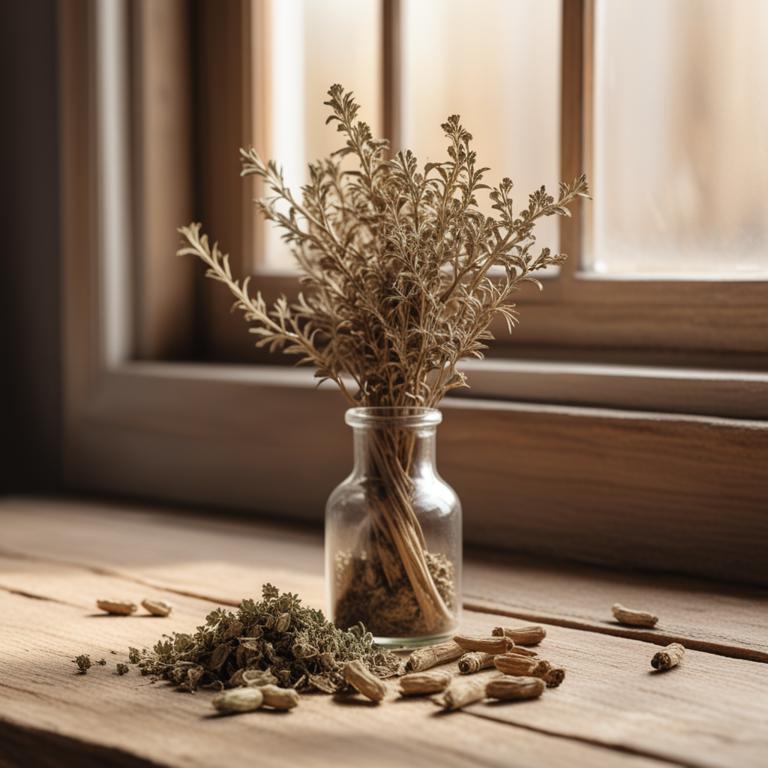
If you've got a hoarse voice, there are some herbs that can help soothe it.
One of the best is Licorice root, or Glycyrrhiza glabra. It's got anti-inflammatory properties that can reduce swelling in the throat and vocal cords, making your voice feel smoother and more comfortable. Another herb that's great for a hoarse voice is Thyme, or Thymus vulgaris. It's got antimicrobial properties that can help fight off infections that can cause a hoarse voice.
Echinacea purpurea, or Purple coneflower, is also helpful. It's got antioxidants that can help reduce inflammation and promote healing in the throat. Ginger, or Zingiber officinale, is another herb that can help with a hoarse voice. It's got anti-inflammatory properties that can reduce swelling in the throat and vocal cords, making your voice feel more comfortable. Lastly, Peppermint, or Mentha x piperita, can help ease a hoarse voice.
It's got a cooling effect that can help numb the throat and vocal cords, making it feel more comfortable.
Which herbal treatments are most popular for soothing a hoarse voice?
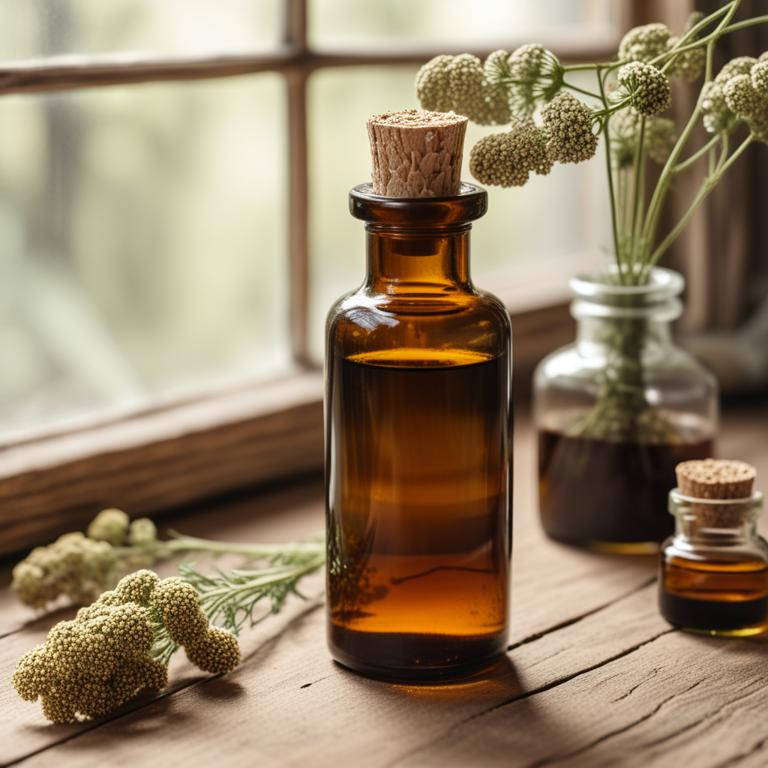
If you have a hoarse voice, herbal preparations can be a great way to soothe and heal it.
A decoction, which is made by boiling herbs in water, is especially good for this. Herbs like slippery elm and licorice root can help calm inflammation in the throat, reducing the discomfort and pain. An infusion, on the other hand, is made by steeping herbs in hot water, and it's great for getting a gentle dose of soothing herbs like chamomile and peppermint. These can help relax the throat muscles and ease the strain on your voice. Herbal capsules are another option, containing concentrated extracts of herbs like marshmallow root and mullein, which can help protect and moisturize the mucous membranes in your throat.
A tincture, which is a concentrated liquid extract of herbs, can be taken sublingually (under the tongue) to quickly soothe a hoarse voice. Some herbs like thyme and eucalyptus can even help clear out mucus and reduce congestion, making it easier to speak. Lastly, lozenges can provide fast and targeted relief for a hoarse voice. Many lozenges contain soothing herbs like honey and aloe vera, which can help calm and moisturize the throat. Some lozenges even contain menthol or eucalyptus oil, which can help clear out mucus and reduce congestion, making it easier to speak.
These herbal preparations can be a great way to find relief from a hoarse voice, but it's always a good idea to talk to a healthcare professional before trying any new remedies.
Additional Resources:
If you're experiencing a hoarse voice, which herbs should you steer clear of?
If you have a hoarse voice, it's best to be careful with some herbs that might make things worse.
For example, Rosmarinus officinalis, also known as rosemary, is a popular herb used for cooking and medicine. However, its strong properties can irritate your throat and vocal cords, making your hoarseness even more uncomfortable. Similarly, Lavandula angustifolia, or English lavender, is often used in teas and infusions, but its fragrance can be too intense for sensitive vocal cords.
Cinnamomum verum, or true cinnamon, is another herb that might not be suitable for people with hoarse voices. Its strong aroma and potential to dry out mucous membranes can exacerbate the problem. Cinchona officinalis, or Peruvian bark, is sometimes used to treat colds and flu, but its bitter properties can be harsh on the throat, making your hoarseness worse.
Finally, Verbascum thapsus, or mullein, is a soothing herb for some people, but its expectorant properties can actually irritate the vocal cords and make your hoarse voice even more pronounced.
FAQ
Are there any specific herbs that can prevent hoarse voice?
Thyme and licorice root are herbs that may help soothe a hoarse voice.
They have anti-inflammatory properties that can calm irritated throat tissues. Thyme's antibacterial properties can also help fight off infections that can cause hoarseness.
Drinking thyme tea or eating licorice root can provide relief for some people.
Is it safe to use herbal remedies for hoarse voice during pregnancy?
When pregnant, it's best to be cautious with herbal remedies.
Some herbs, like slippery elm and licorice root, might help soothe a hoarse voice, but their safety during pregnancy hasn't been fully studied. It's possible to cause harm to the unborn baby.
If you're considering using them, talk to your healthcare provider before doing so.
Are there any herbs that can reduce the frequency of hoarse voice?
Slippery elm and licorice root are two herbs that may help soothe a hoarse voice.
They have anti-inflammatory properties that can calm irritated vocal cords and reduce swelling. When consumed as a tea or added to food, they can provide quick relief and reduce the frequency of hoarseness.
Some people also use thyme to help ease vocal strain.
Related Articles
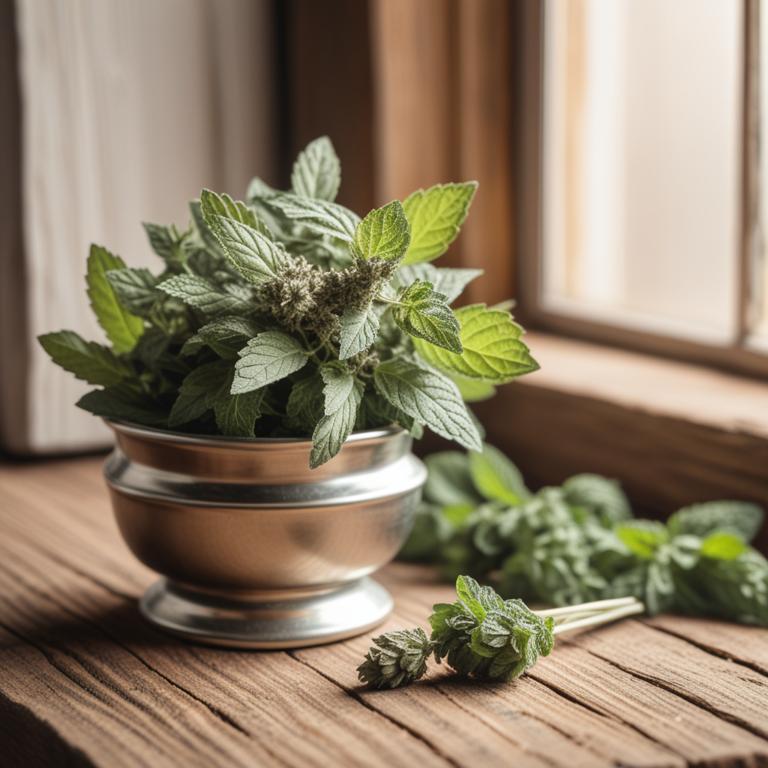
Throat Irritation Relief: Natural Causes and Effective Medicinal Herbs
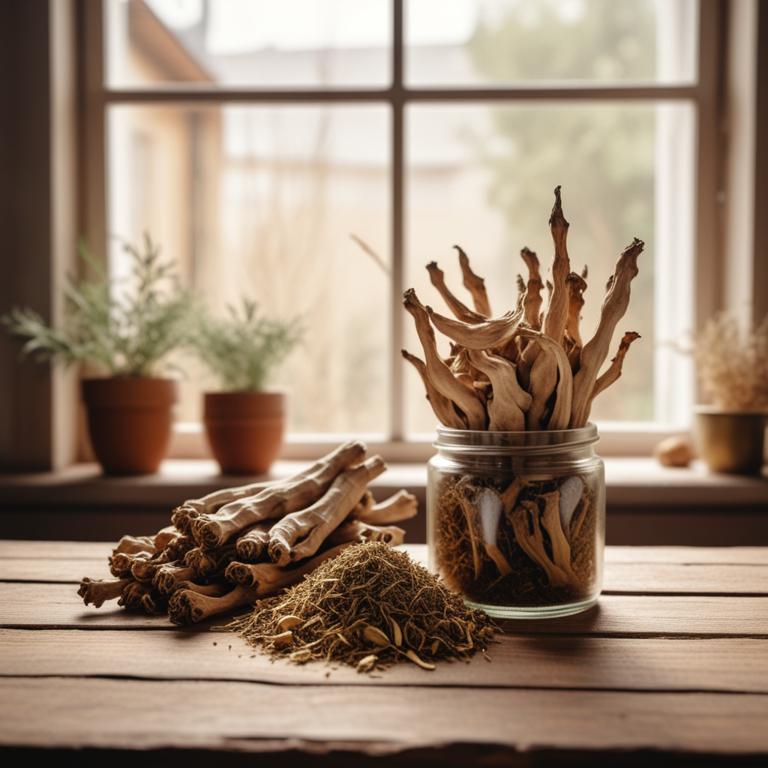
Understanding Chronic Bronchitis: Causes, Medicinal Herbs, and Herbal Remedies
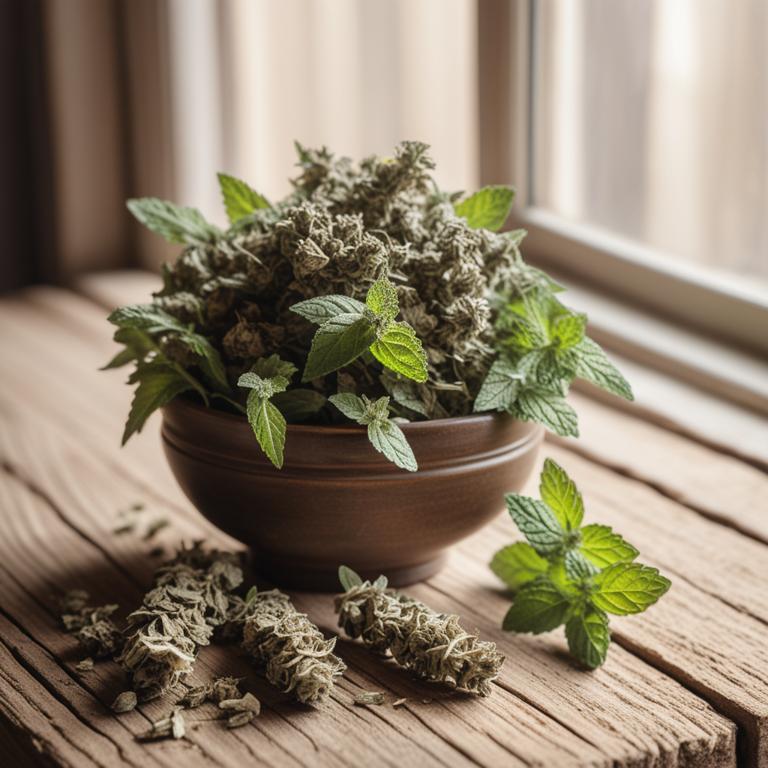
Blocked Nose: Causes, Prevention, and Medicinal Herbs for Relief
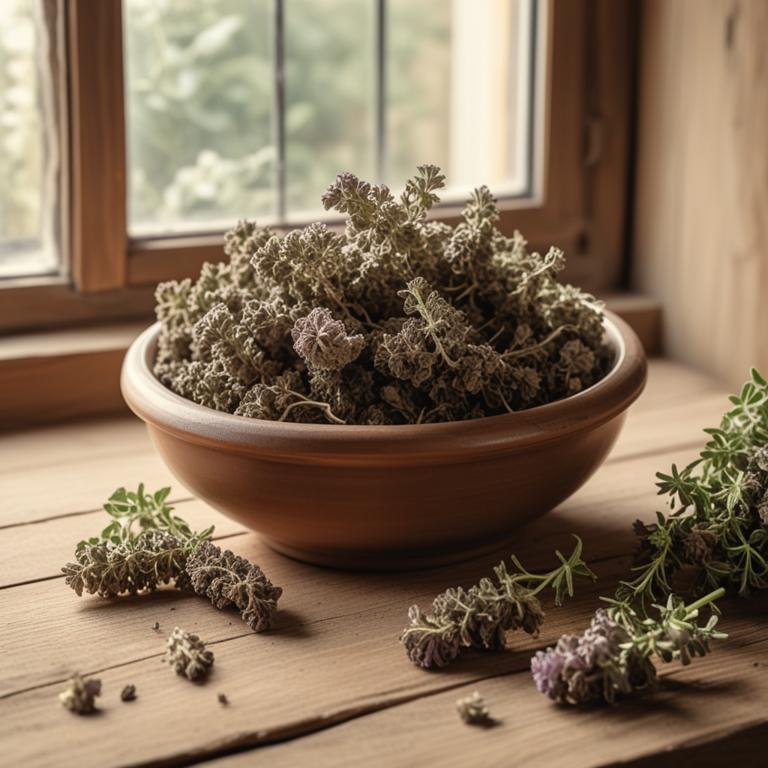
Mucus in Throat - Understanding the Causes and Herbal Cures
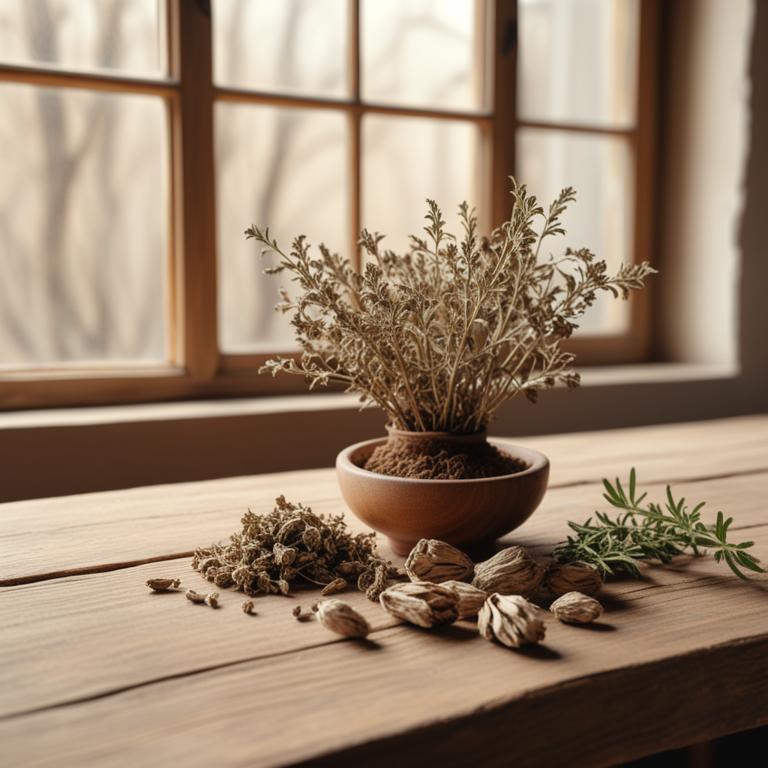
Sore Throat Causes, Herbal Cures, and Medicinal Plant Remedies
